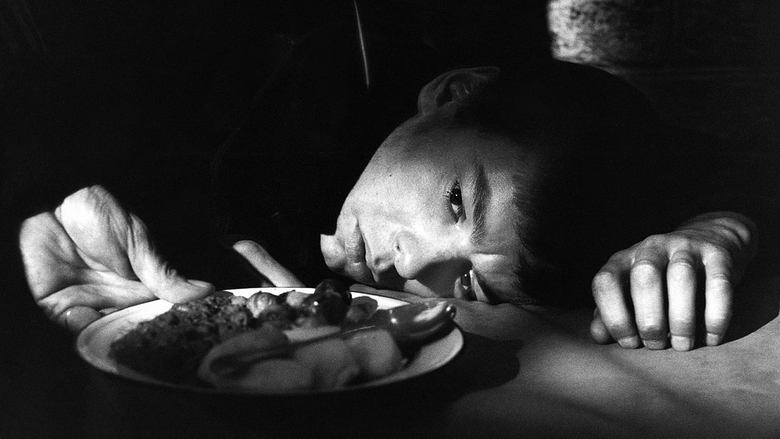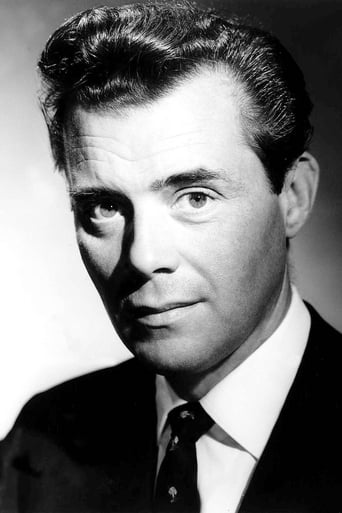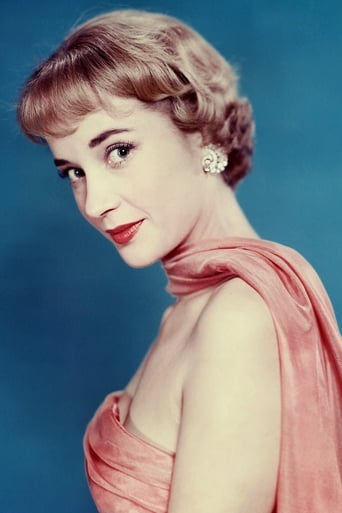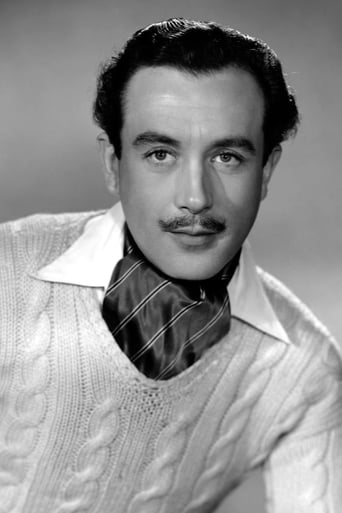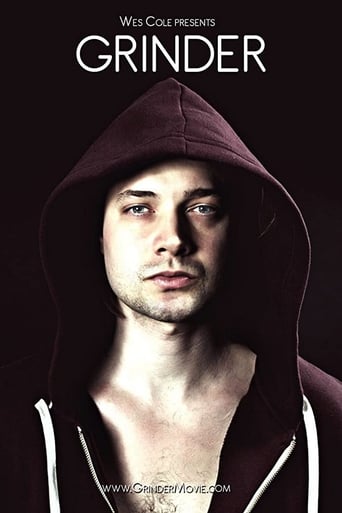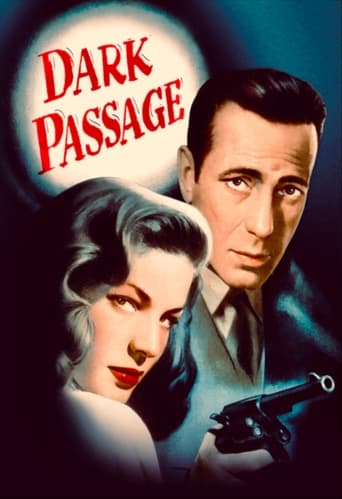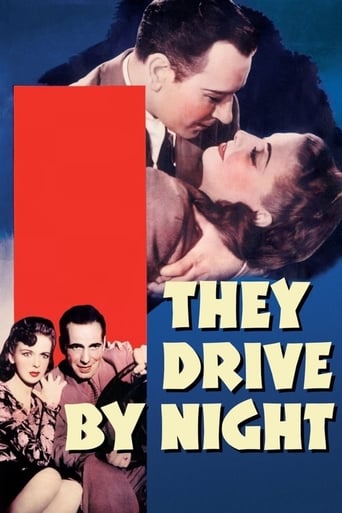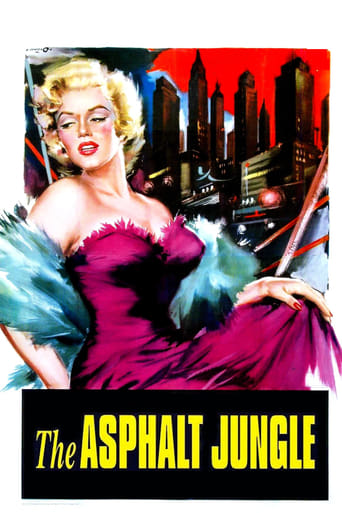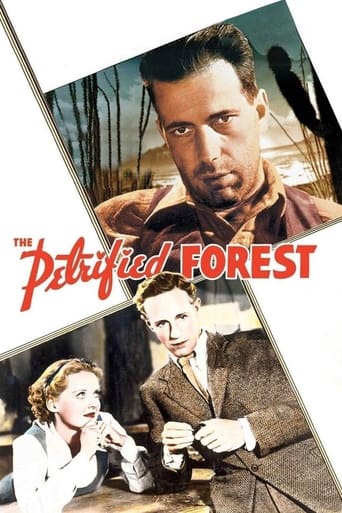Victim (1961)
Barrister Melville Farr is on the path to success. With his practice winning cases and a loving marriage to his wife, Farr's career and personal life are nearly idyllic. However, when blackmailers link the secretly closeted Farr to a young gay man, everything Farr has worked for is threatened. But instead of giving in, Farr decides to fight.
Watch Trailer
Cast


Similar titles
Reviews
Simply Perfect
If you don't like this, we can't be friends.
Simple and well acted, it has tension enough to knot the stomach.
Pretty good movie overall. First half was nothing special but it got better as it went along.
The first English language film to use the word "homosexual" in dialogue, this is an excellent social justice drama / thriller. The first rate script by Janet Green and John McCormick is a scathing indictment of Section 61 of the Offences Against the Person Act 1861 and related legislation which criminalised homosexual acts between males in the UK. It was still in force at the time that the film was made. Such acts were finally decriminalised in England and Wales by virtue of the Sexual Offences Act 1967, though they remained a criminal offence in Scotland until 1980 and Northern Ireland until 1982. It is worth mentioning that the UK was far from unusual in this respect as, for instance, homosexuality was an offence in East Germany until 1968, West Germany until 1969 and the Republic of Ireland, where I'm from, until 1993. Returning to the matter at hand, the film was very progressive and groundbreaking for its time in its liberal and sympathetic attitudes towards homosexuality. While it may appear a little diffident by today's standards, such social issues films are best considered in the context of their time. The same is true of the very condescending reference to gay men as "little people" who are afraid to come forward and one or two other comments of this nature. The film is very well directed by Basil Dearden, who is able to maintain a high level of suspense throughout the proceedings.The film stars Dirk Bogarde in a characteristically wonderful performance as Melville Farr, an extremely successful London barrister who has been called to the silk at the young age of 40 and is expected to one day become a judge. However, Farr is a closeted gay man who is desperate to hide his sexuality as, even if he managed to avoid a prison sentence, the revelation would destroy him professionally. As such, he ignores the multiple attempts made by Jack "Boy" Barrett, with whom he previously shared a romantic relationship, to contact him. He had assumed that Barrett was attempting to blackmail him over their relationship, which was never consummated, but he discovers that Barrett was himself the victim of blackmail and was seeking his assistance. Farr is guilt stricken when he is informed that Barrett has committed suicide. Although she is aware that he had a dalliance with another young man named Phil Steiner in Cambridge, Farr's wife Laura, played very well by Sylvia Syms, is shocked to learn of his relationship with Barrett. The reason behind her astonishment is that she thought that she had been able to cure him through their marriage. Farr says at one point that he has attempted to deny his sexuality for most of his life. The clear implication is that he has never had sex with another man and perhaps even that he hoped that marriage would indeed cure him. Farr admits that his feelings for Barrett had more to do with lust than love and that he broke up with him after he realised that he "wanted him." He later tells Laura that he loves her deeply but I got the feeling that he may have trying to convince himself of that since there is no indication that he is bisexual. Bogarde is excellent at conveying the character's inner turmoil and there is always a real sense of conflict and tension in his performance.Although Bogarde was both a major box office draw and a brilliant actor (two things which do not always go together), the first choice was Jack Hawkins, who turned it down because it thought that playing such a role would damage his career. Since Bogarde was gay in real life, he had far more to lose than Hawkins but accepted it nonetheless. By this time, his sexuality had been an open secret in the British film industry for over a decade. After the release of "So Long at the Fair" in 1950, Rank intended to release a cover story that he was dating his co-star Jean Simmons but those plans were ruined when she married Stewart Granger. By all accounts, Bogarde was a shy and intensely private man so it is perhaps unsurprising that he never publicly came out. While it was a courageous decision on his part to make the film, it did damage his career as it ended all serious prospects of him having a major Hollywood film career. It has been suggested that he might have had more luck in the US if he had entered into a marriage of convenience with a woman, as Rock Hudson and Charles Laughton did.Charles Lloyd Pack is excellent in his small role as Henry, a gay barber and another victim of the blackmailers. He has been imprisoned four times over the years and does not have the strength to go through it again. He claims that nature played him a "dirty trick" but nevertheless says that homosexuality can't be cured, not least by putting people behind bars. Dennis Price is very good as the gay theatre actor Calloway, a thinly veiled version of Noël Coward which was probably obvious to everyone in 1961. It also features an appearance by Hilton Edwards, who founded the Gate Theatre in Dublin with his lover Micheál Mac Liammóir in the late 1920s. Their romantic relationship was a very open secret but no one really passed any remarks on them. They were actually very well liked. The film also features strong performances from Nigel Stock, Norman Bird, Anthony Nicholls, Derren Nesbitt, John Barrie and John Cairney. John McEnery, who plays Barrett, is certainly the weakest link but he does not have a huge amount of screen time.Overall, this is an extremely effective social justice film which is serves as a powerful statement against homophobia in whatever form that it might take.
Dirk Bogarde (famous for his main role in "Death in Venice") is Melville Farr, a most successful lawyer that has gained acceptance in the Chamber of Lords and is about to become a judge. He's wealthy and famous, he lives more than comfortably and he is married to a beautiful woman. Is he the perfect man? Well, he would be for any open-minded individual, but not for those of more traditional upbringing.Melville Farr defies law, his acts mock morality, and his thoughts are not of a decent nature. He is, after all, a man doomed to survive in a time in which homosexuality was a crime, a time in which exposing his true nature would have meant being imprisoned.At the beginning of the movie, a young man nicknamed 'Boy' is searching for him. He calls him constantly but the more desperate he gets in trying to reach him, the more Melville Farr eludes him. Farr has spent time with Boy, perhaps too much, and because of this intimacy he fears that he may be heinously extorted. The truth is, however, that Boy is the one being blackmailed by someone who has discovered his homosexual tendencies and has a compromising photography of the young man and the prestigious and well-respected barrister. Set in the early 60s, this film courageously denounces what could be, perhaps, one of the most unfair rules in Britain: the criminalization of homosexuality.Judith Butler studied postmodernist and poststructuralist theories to define the "subject" relying in linguistic terminology, not unlike what Jacques Lacan attempted while coming up with terms like the symbolic order (the system of signs and conventions that form our perception, our very reality). Compelled "by social sanction and taboo", society learns to discriminate those who oppose the heterosexual norms. As a result, our belief in "natural" behavior is really the result of a mixture of indirect and flagrant coercions. Repudiation towards gays, lesbians or bisexuals becomes necessary for the standard subject to establish "an identification with the normative phantasm of sex".For Butler gender is a construction that regularly conceals its genesis. And that genesis is not physical but performative; the body becomes its gender only "through a series of acts which are renewed, revised, and consolidated through time" (through a certain performativity that varies in each culture, one might add). Should we critique the assumptions of normative heterosexuality? Certainly those punitive rules (social, familial, and legal) have forced us to conform to hegemonic, heterosexual standards for identity.It's only fitting then, that the protagonist of "Victim" is a man of law, and through sheer performativity, in this case the kind of performativity that also sustains and nurtures the law, he will face a most difficult dilemma. After Boy's capture, police officers start investigating the origin of the extortion. As a consequence, Melville will no longer be able to ignore this situation, as he would have preferred to do. Why is this a dilemma? He can't confess to the police the fact that he had a relationship with another man, as that is forbidden. But, at the same time, he cannot let the blackmailers get away unpunished.As he starts investigating who could be responsible of blackmailing Boy, he digs deeper and deeper into London's gay scene. He meets men that sleep with men, people that forever hide in the shadows, and soon he learns that there are many homosexuals paying money to avoid being exposed.At the end, he must make a final stand. If his decision is to stop the criminals that threaten to destroy so many lives, he must first collaborate with the police and come forward embracing his true sexuality. That, of course, guarantees the end of his brilliant career, all of his professional ambitions will come to a halt should he decide to tell the truth. But at the same time, and this is most notorious, by playing by the rules, he also has the opportunity to perform in front of a jury, and as the nature of law is similar to the conformation of human habits, id est, it's prone to change and alteration, here performativity can also turn into the necessary coup de etat to vanquish a most ruthless law."Victim" was a brave production and a most controversial film in a difficult time, tackling an aspect of British law that would compare the simple fact of being gay to an arm robbery, thus condemning homosexuals to be locked behind bars, no matter how peaceful or harmless they could be. Butler's project has been so far to quote the law in order to reiterate and coopt its power, to expose the heterosexual matrix and to displace the effect of its necessity. If Farr decides to confess he's gay to his wife and to the world, he will have one chance, one shot at exposing the heterosexual normativity and undermine it long enough for people to accept that, perhaps, against everything they have been taught, an option different from heterosexuality might not mean the end of the world.
Being the first English language film to use the big bad word "homosexual," Victim was banned at first in the United States (cue the eye roll emoticon). The film intelligently takes on the absurdity of sodomy laws in '60s England and the blackmailing that was the worst of it by that time. Top marks to Dirk Bogarde who wouldn't be dissuaded from his compelling performance as the star of this picture.Not being one to denigrate the passage of meritorious ideas, I appreciate cinema, as I do literature, for its capacity to influence the collective mindset in positive ways. I have my egalitarian sensibilities to credit for the lofty perspective permeating this review.
Reflection of our own history is fascinating, especially when we take the time to notice that what was once considered illegal, is now quite tolerated. The film, " Victim " is truly remarkable for it's time. The main star, Dirk Bogarde plays Melville Farr, who is married, dedicated and a well respected English Barrister (Lawyer) in England. Furthermore, as an official of the Court, he holds a prominent position in the hierarchy of polite society and is about to be appointed a Judge. Like most people,he has secrets, one of which remains deep and dark. Indeed, except for his wife Laura (Sylvia Syms) few are privy to know his is a closeted Homosexual. Years ago, it was not only damming, but against English law, punishable by imprisonment. From far in Farr's past, emerges an echo of his early indiscretions, in the form of a tormented young man named Barret (Peter McEnery) who desperately wants to meet with him. Believing he is out to blackmail him, Farr dismisses him, only to learn he later commits suicide. This changes the tempo of what is regarded as a sleeper of a movie. Yet, far from it, this black and white film extends an invitation into the dramatic, nightmarish world of terror feared by any gay individual seeking to avoid the wrath of a homophobic world. Aside from such notables as Derren Nesbitt (Where Eagles Dare), John Barrie and John Cairney (Cleopatra), there is the excellent direction of Basil Dearden. Too often a minor film such as this has a greater impact on society than many expected. Dirk Bogarde who gave us other Classics like 'A Death in Venice', 'The Servant and 'Sebastian' has once again created yet another monumental Classic. Easily recommended. ****


